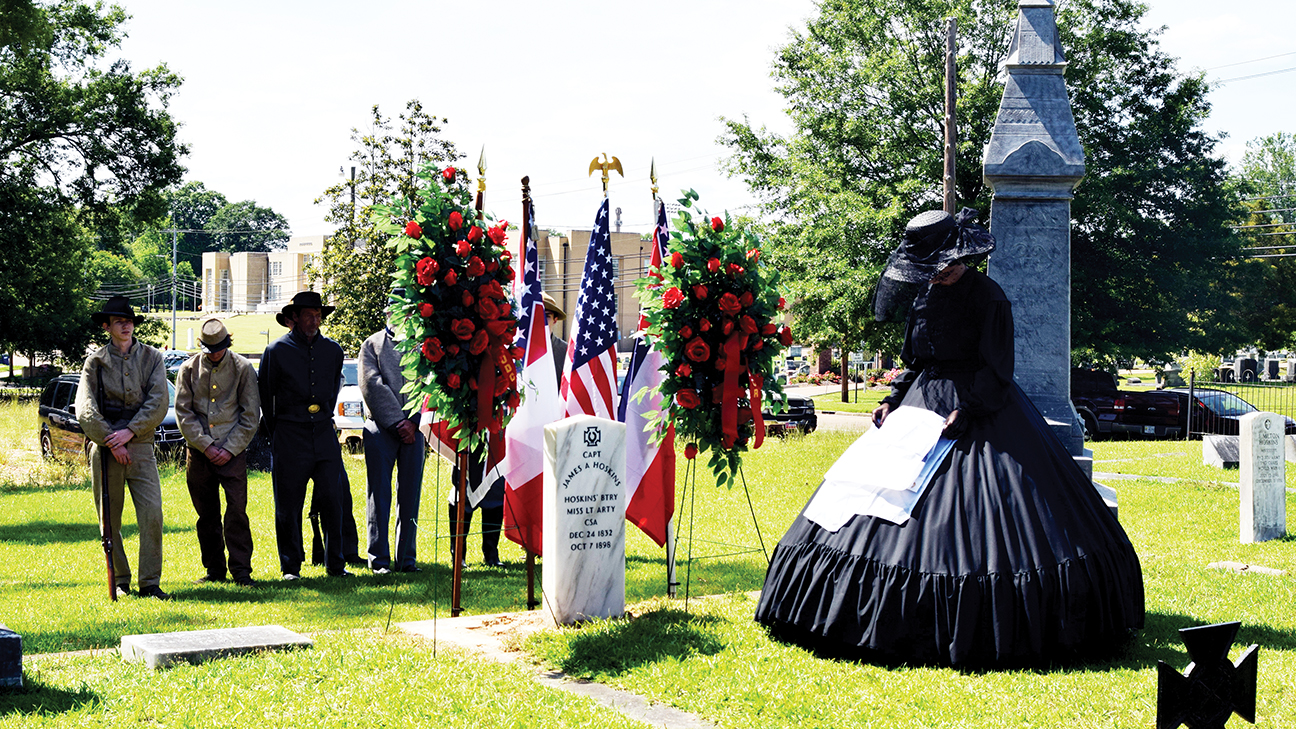McDaniel group wants to look at voter books
Published 10:33 am Wednesday, July 2, 2014
The Chris McDaniel campaign is on the hunt for voter fraud in Lincoln County and around the state after the heated Republican U.S. Senate primary runoff race last Tuesday.
The higher number of voters present in the runoff race has the McDaniel campaign in an uproar, accusing state officials of allowing previously Democrat voters to vote in the election.
On Monday the Lincoln County Circuit Clerk Dustin Bairfield received a notice from The Tyner Law Firm in Jackson requesting that McDaniel campaign representatives review the Lincoln County poll books. Both candidates’ representatives will be present at the review on Thursday.
Bairfield said the review is coming after a series of requests by local campaigners to review the books without proper paperwork. He added that in accordance with state code, the voter books remain sealed for 12 days after the election, with the exception that party candidates or official candidate representatives may view the books within that period.
McDaniel’s campaign representative will sift through over 2,000 pages of poll books to look for any crossover fraud. Lincoln County is one of several counties across the state that is being asked to open the books for campaign review.
To date, Chris McDaniel has presented no evidence to support his claim that voter fraud pushed Senate incumbent Thad Cochran to victory in Mississippi’s GOP runoff. And without evidence, the tea party-backed hopeful is going to have a tough time overturning Cochran’s nearly 6,800-vote win statewide.
But a week after the balloting, McDaniel isn’t giving up.
McDaniel spokesman Noel Fritsch said Tuesday that the campaign continues to examine poll books across the state for possible examples of crossover voting that is prohibited by state law – people who voted in both the Democratic primary June 3 and the Republican runoff June 24.
“We haven’t determined our specific legal recourse,” Fritsch said. “We’re kind of in a holding pattern, to a certain degree, while we’re collecting evidence.”
Mississippi voters don’t register by party. State law says the only people banned from voting in the June 24 Republican runoff were those who voted in the June 3 Democratic primary.
McDaniel and his tea party patrons insist that Democrats who voted in the runoff and helped propel Cochran to victory violated the crossover voting law. Some also are claiming that the Democratic Cochran supporters are now required to vote for Cochran in the general election. A court ruled that policy unenforceable. And McDaniel himself hasn’t committed to supporting Cochran.
Mainstream Republicans have disavowed McDaniel’s complaints about Democrats voting in a Republican contest at a time when the GOP is struggling nationally to expand its traditional base of white voters. The majority of Democrats in the state are black.
And some of the groups that spent millions supporting McDaniel have walked away. The Club for Growth, which spent more than $3.1 million to help McDaniel, quickly congratulated Cochran as the winner and moved on.
It’s baffling to Cochran supporter Clarke Reed.
“Every primary I remember, the 50 years I’ve been around, the guy concedes,” said Reed, 86, of Greenville, who chaired the state GOP from 1966 to 1976.
But McDaniel hasn’t conceded. And some of his supporters press on.
The McDaniel campaign has sent representatives to most of Mississippi’s 82 counties to try to examine poll books to look for crossover voting, Fritsch said. The McDaniel campaign believes it has found about 3,300 crossover votes in 38 counties, state Sen. Michael Watson, an attorney who has been deeply involved in the campaign, said Tuesday. However, the campaign has not released documents to back up those numbers.
“They’re really stirred up. That’s not good,” Reed said. “We’ve never had a problem like this in the party before.”
The state Republican executive committee met Tuesday afternoon, but did not certify results of the June 24 runoff because an unknown number of affidavit ballots remain to be counted under the state’s new voter ID law. Any voter who lacked a proper form of government-issued photo identification at the polls last week was allowed to vote by affidavit, and he had five business days – until the end of Tuesday – to return to an election clerk’s office to show ID so the vote would count.
Daily Leader reporter Katie Williamson and Associated Press writer Emily Wagster Pettus contributed to this report.





